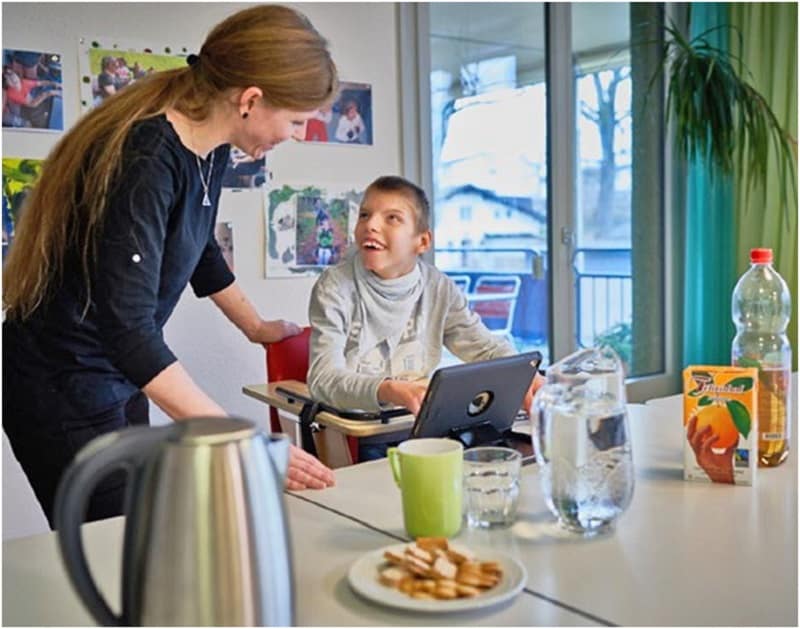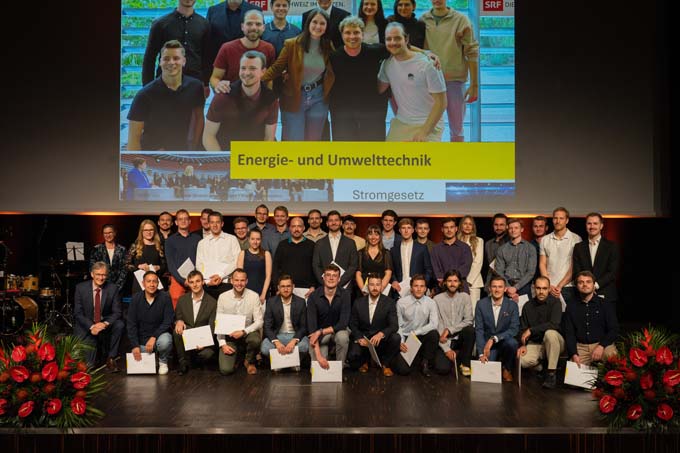"Why we can never rest ..."
People with disabilities do not have an easy life. All the more necessary are institutions that support them. The Stiftung die rodtegg (www.rodtegg.ch) is one such institution - one that is constantly improving this valuable work.

The rodtegg in Lucerne is a private foundation for children, young people and adults with physical or multiple disabilities. It offers education, therapies, training, work, housing and counselling with the comprehensive aim of promoting the independence and self-responsibility of the people entrusted to its care. Today, around 240 pupils, trainees and adults use the services offered by Rodtegg.
Demanding work
Working with disabled people is demanding and also involves a lot of effort "behind the scenes". Social, economic and political developments must be constantly incorporated into the operational processes. A current topic, for example, is the sexuality of people with disabilities. The first concept dates back to 2007 and is now being adapted and revised to reflect the current situation. Where a need for change is seen in the daily work (e.g. wet cells in the residential home, leisure room), the request is implemented immediately, and depending on the situation, projects are launched. The effect of the changes is measured with existing indicators (e.g. customer satisfaction).
Diverse stakeholders
Quality is a top priority at Rodtegg in order to be able to meet the requirements and demands of the state - such as the canton, the IV, health insurers, school communities, parents, employees and residents. In 2008, the foundation was successfully certified according to ISO 9001:2000. But it was not satisfied with this: with the EFQM model, the management relied on an instrument to be able to approach continuous improvement holistically. In 2013, the company was awarded R4E***. But even this award is only a milestone on the way ahead: in 2018, Rodtegg successfully applied to participate in the ESPRIX Award for Excellence - a step that was particularly appreciated by the SQS audit team, which was responsible for the ISO recertification (maintenance audit).
Better appreciate the work with disabled people
Director Luitgardis Sonderegger-Müller sees the nomination for the ESPRIX Award not only as a "reward" for the effort put in. Rather, she wants to show that the work in social institutions is carried out just as much according to entrepreneurial, economic and quality-oriented criteria as in the private sector. She vehemently defends herself against the cliché that she encounters time and again: "It's nice to work with disabled people. They give you back so much beauty and so much joy." This is only half the truth: "We have to prove every day that we work professionally, because we are under a lot of pressure to legitimise ourselves in the eyes of our donors," says Sonderegger-Müller. Like many other institutions, the rodtegg Foundation works with clearly defined processes. In these, specifications are made in the form of concepts, flow charts, regulations and directives. This is sometimes complex, but thanks to the self-assessment with the EFQM model, some staff members finally agreed: "Only now have we really got to know the business.
In conversation: Luitgardis SondereggerMüller, Director
Ms Sonderegger-Müller, you have introduced the EFQM model as a continuation of ISO certification in your company. What can EFQM do "better" than ISO 9001:2008? The EFQM model is more dynamic and more focused on continuous improvement processes, indeed it allows continuous improvement in the first place. We have also found that self-assessment according to the EFQM model is better than according to the ISO standard. We make employees participants, they think along with us and give feedback again and again. This promotes identification with the company.
What are the biggest challenges in working with the EFQM model?
The desire to constantly improve is a philosophy. We work on this regularly at the twice-yearly in-house conferences, which are mandatory for all employees. Because the model cannot be "anchored", it has to be broken down to all employee levels. For each criterion, we have therefore formulated five to six questions - questions that employees should always ask themselves in order to recognise where Rodtegg has room for improvement.
Until excellence, i.e. the goal, is achieved?
Ultimate excellence cannot be achieved. Because the environment is constantly changing. That is why we are always challenged to keep pace with developments. Technology and digitalization are just two examples in this context.
To what extent are you supported by third parties on your way to excellence?
We had the whole process accompanied by EFQM experts. However, we wrote the application documents for the R4E*** level ourselves in 2013 - amazingly, we even got away with it... However, we would probably not have managed the nomination for the award on our own. Getting an external view again and again proved to be very valuable.
What is your first conclusion from the application process?
Hard to say. Perhaps one insight: why can we never rest?









